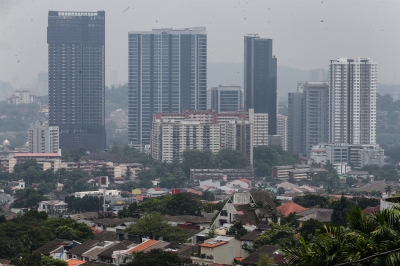KUALA LUMPUR, Feb 24 — Putrajaya’s plan to table the Urban Renewal Bill this year has raised concerns among homeowners who fear the law could enable forced sales of their properties.
Central to their anxiety is the proposed lower threshold for consent to approve the en bloc sale of buildings. The National House Buyers Association (HBA) has warned the move could create a backdoor for developers to acquire properties for high-end redevelopment, potentially displacing poorer communities.
In response, the Ministry of Housing and Local Government (KPKT) clarified that the Bill would include clear safeguards. On February 21, the ministry released a draft of the proposed Urban Renewal Act for public feedback.
Here are the safeguards proposed under the Bill:
Two committees to vet projects
The draft Bill mandates that all urban renewal projects undergo vetting and approval by two committees.
At the state level, the State Executive Committee — comprising the menteri besar or chief minister as chairman and four state executive councillors — will review and certify project proposals submitted by developers.
However, before state-level approval, the proposal must first pass through a Federal Executive Committee. This committee, chaired by the KPKT minister, includes state executive councillors overseeing town and country planning, the secretary-general for KPKT, and the director-general of Town and Country Planning, among others.
The federal committee will have the power to advise state-level committees on whether a building or area can be designated for redevelopment and assess the viability of proposed projects.
Public interest prioritised
The draft Bill includes provisions to safeguard homeowners’ rights and interests.
For instance, Section 6(3)(d) requires the federal committee to ensure that the rights of proprietors or occupiers are “guaranteed and protected as prescribed.” This provision means the committee’s decisions cannot override existing legal protections for homeowners.
Part IV of the Bill addresses compensation and mediation. Section 14(1) stipulates that homeowners or occupiers agreeing to a project must receive offers “not less favourable than what they currently enjoy.”
The committees will also be responsible for selecting developers for urban renewal projects. While the Bill does not outline specific criteria for selection, it indicates that state committees will appoint developers based on advice from the federal committee.
Minister’s powers
Part V of the draft Bill grants significant powers to the minister.
Section 15(1) allows the minister to make rules “as may be expedient or necessary” to implement the Act. These rules could include setting the threshold for consent participation in urban renewal projects and providing tax incentives for eligible developers.
Draft subject to change
The Urban Renewal Bill remains in draft form, with the ministry actively seeking public input to refine the proposed legislation.
KPKT Minister Nga Kor Ming has said he plans to table the Bill either in mid-2025 or during the November parliamentary sitting.
The final version of the Bill may include additional safeguards or tighter regulations based on feedback received.







